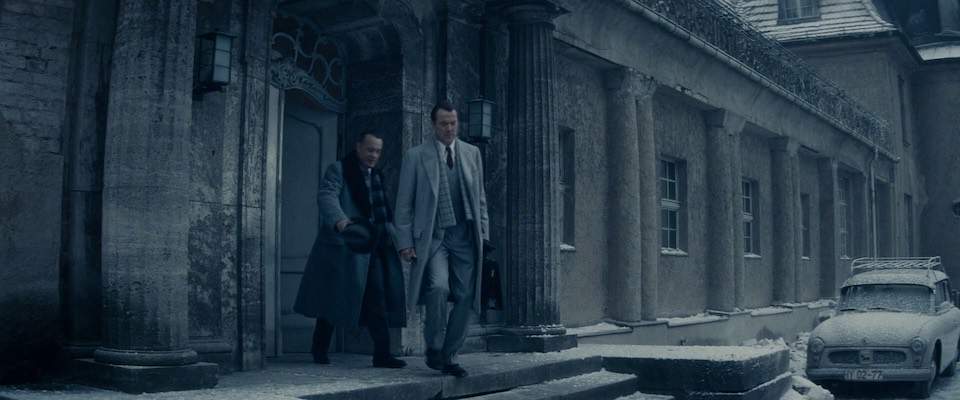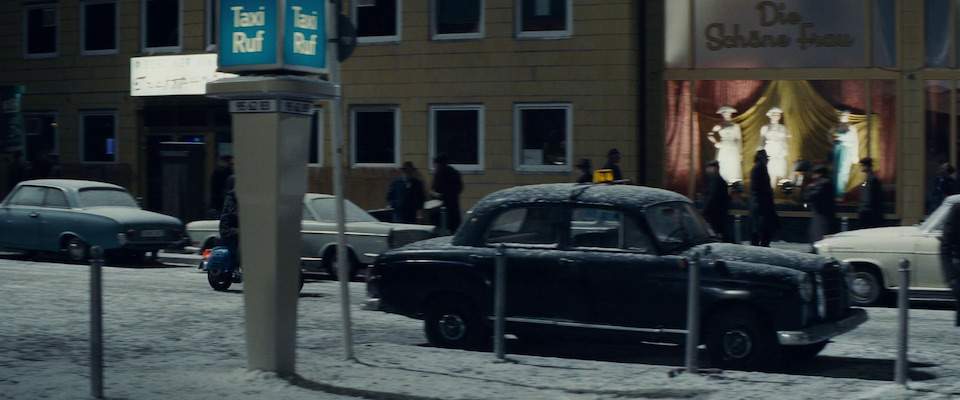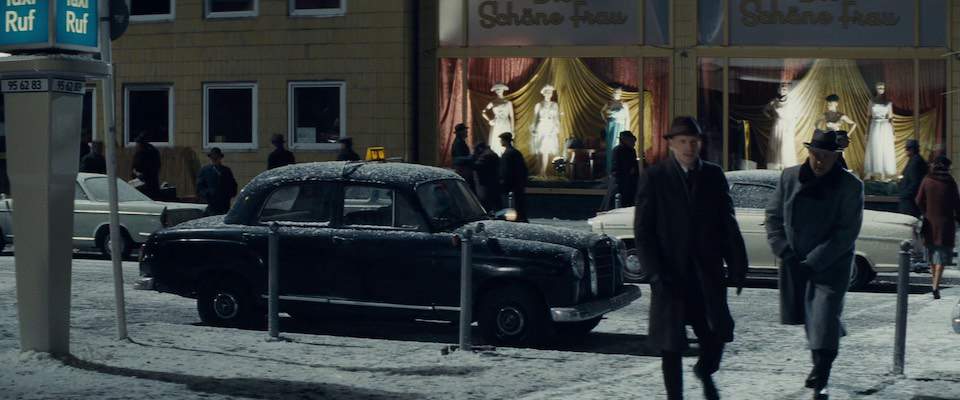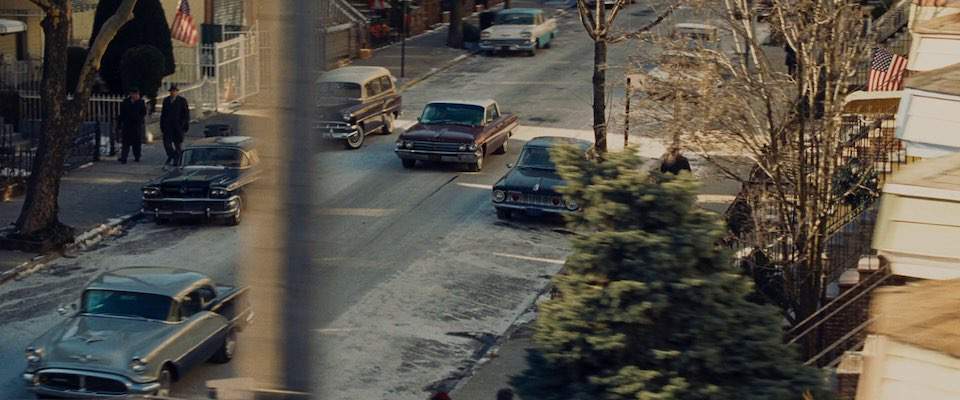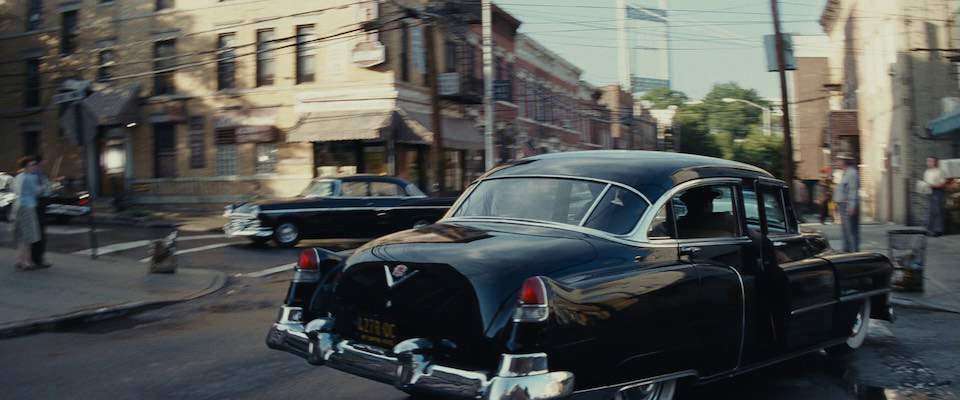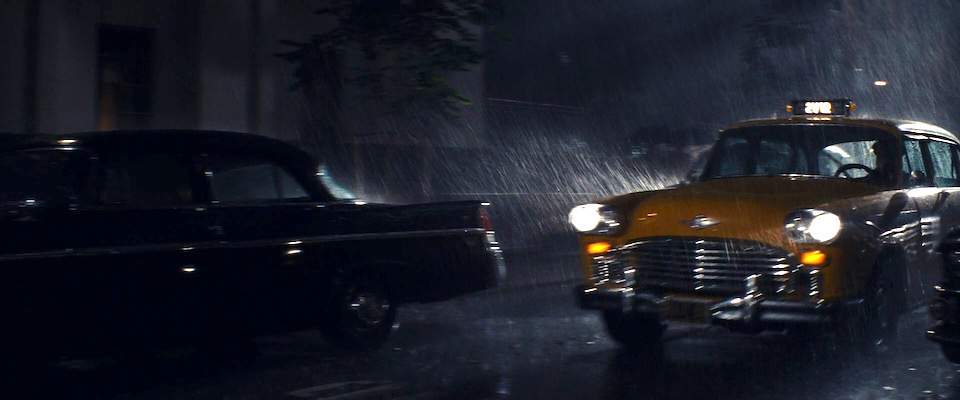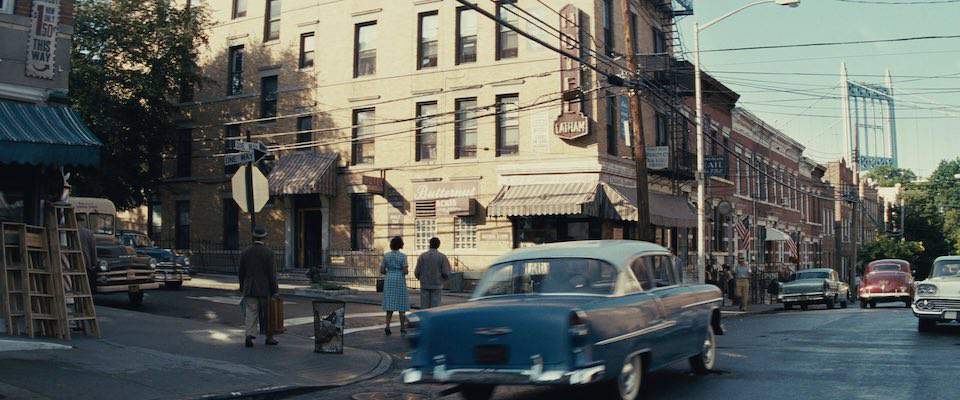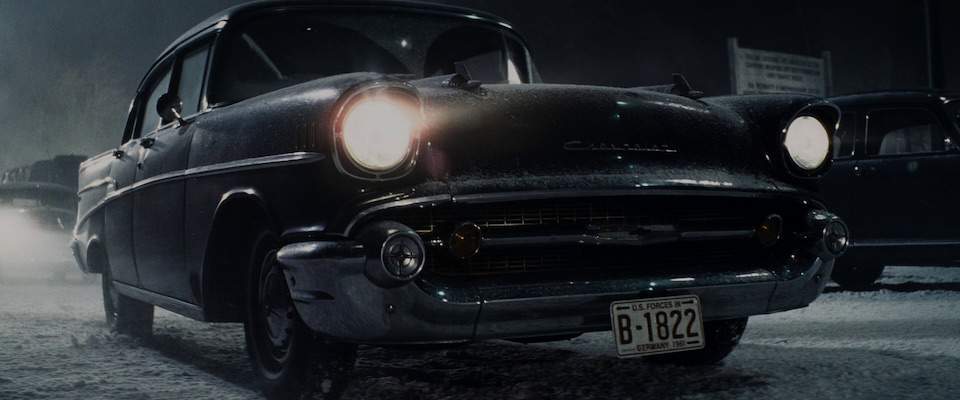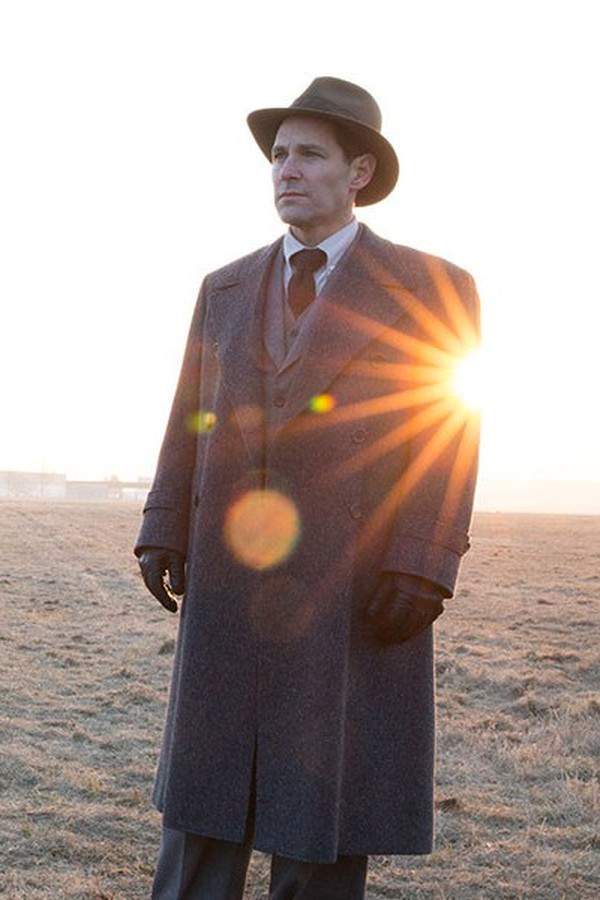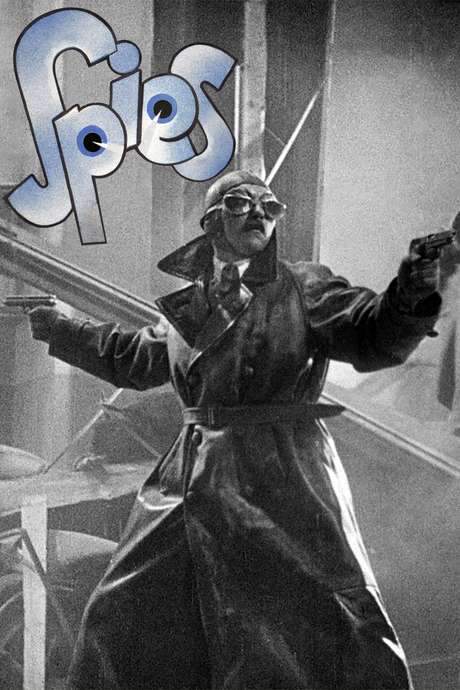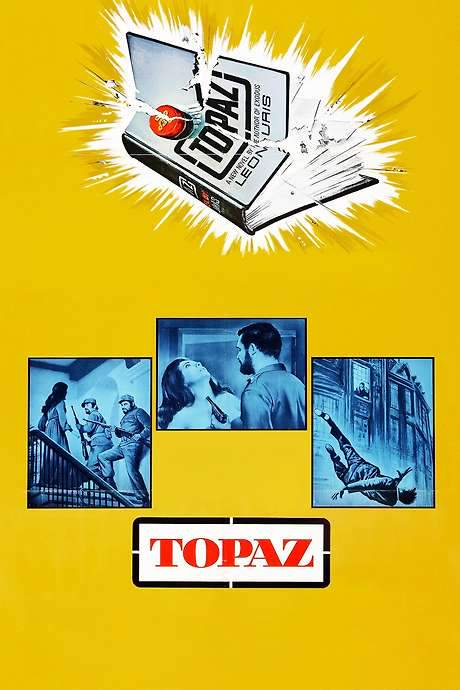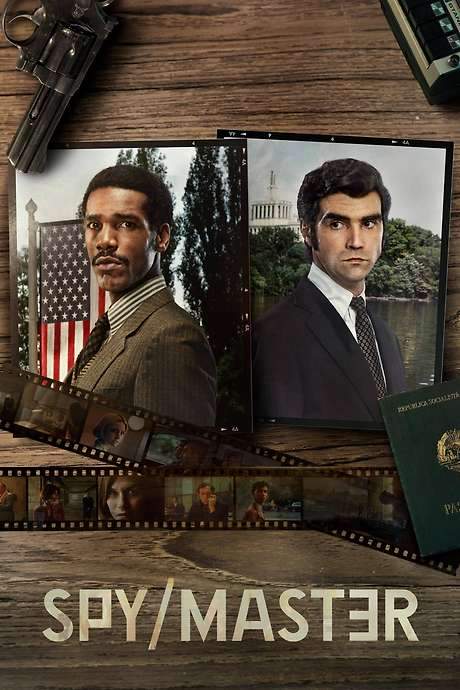Bridge of Spies 2015
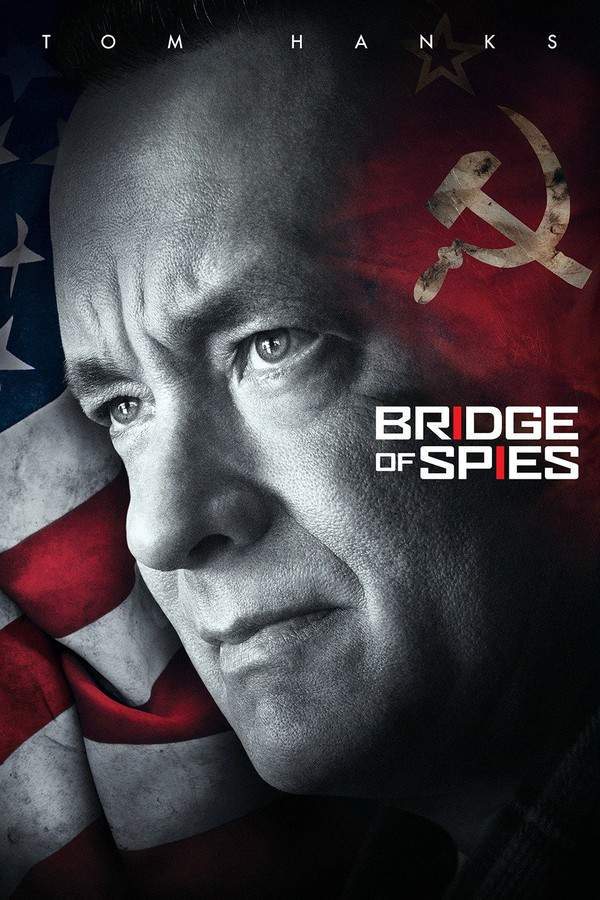
During the height of the Cold War, American U-2 pilot Francis Gary Powers is captured in Soviet territory and sentenced to years of imprisonment. As tensions rise, lawyer James Donovan is tasked with an extraordinary mission: to negotiate Powers’ release through a complex prisoner exchange. Donovan must navigate dangerous political landscapes and personal risk to secure the pilot’s freedom, trading him for Rudolf Abel, a skilled Soviet spy already in American custody. The precarious situation demands careful maneuvering and unwavering resolve.
Does Bridge of Spies have end credit scenes?
Yes!
Bridge of Spies does have end credit scenes. Stay until the very end!
Meet the Full Cast and Actors of Bridge of Spies
Explore the complete cast of Bridge of Spies, including both lead and supporting actors. Learn who plays each character, discover their past roles and achievements, and find out what makes this ensemble cast stand out in the world of film and television.
External Links and Streaming Options
Discover where to watch Bridge of Spies online, including streaming platforms, rental options, and official sources. Compare reviews, ratings, and in-depth movie information across sites like IMDb, TMDb, Wikipedia or Rotten Tomatoes.
Ratings and Reviews for Bridge of Spies
See how Bridge of Spies is rated across major platforms like IMDb, Metacritic, and TMDb. Compare audience scores and critic reviews to understand where Bridge of Spies stands among top-rated movies in its genre.

81
Metascore
7.6
User Score


91%
TOMATOMETER

87%
User Score

7.6 /10
IMDb Rating

72
%
User Score

3.6
From 179 fan ratings

3.94/5
From 31 fan ratings
Take the Ultimate Bridge of Spies Movie Quiz
Challenge your knowledge of Bridge of Spies with this fun and interactive movie quiz. Test yourself on key plot points, iconic characters, hidden details, and memorable moments to see how well you really know the film.
Bridge of Spies Quiz: Test your knowledge about the thrilling true story behind 'Bridge of Spies'.
What was Rudolf Abel accused of?
Espionage on behalf of the Soviet Union
Treason against the United States
Vandalism in East Berlin
Supporting the CIA
Show hint
Awards & Nominations for Bridge of Spies
Discover all the awards and nominations received by Bridge of Spies, from Oscars to film festival honors. Learn how Bridge of Spies and its cast and crew have been recognized by critics and the industry alike.
88th Academy Awards 2016
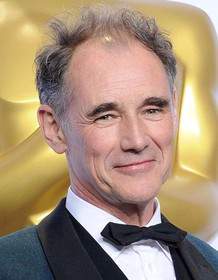
Music (Original Score)
Best Picture
Production Design
Sound Mixing
Writing (Original Screenplay)
69th British Academy Film Awards 2016
Best Film
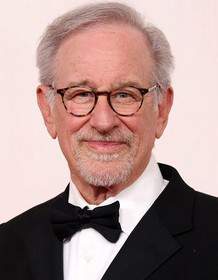

Best Original Screenplay
Best Cinematography
Best Editing
Best Original Music
Best Production Design
Best Sound
21st Critics' Choice Awards 2016
Best Picture


Best Original Screenplay
Best Art Direction
22nd Annual Screen Actors Guild Awards 2016

31st Artios Awards 2016
Big Budget – Drama
73rd Golden Globe Awards 2016

Full Plot Summary and Ending Explained for Bridge of Spies
Read the complete plot summary of Bridge of Spies, including all major events, twists, and the full ending explained in detail. Explore key characters, themes, hidden meanings, and everything you need to understand the story from beginning to end.
In the intense heat of summer 1957, the life of Rudolf Abel took a drastic turn as he found himself charged with espionage for the Soviet Union. Amidst this turmoil, James B. Donovan, a former general counsel to the Office of Strategic Services, stepped up to represent Abel, fully aware of the formidable challenge ahead. Driven by an unwavering belief in his client’s right to a robust defense, Donovan maintained strict confidentiality regarding his communications with Abel, fiercely resisting the CIA’s persistent pressure to disclose them.
As the trial unfolded, Donovan fought diligently, ultimately convincing the judge to impose a 30-year prison sentence on Abel rather than death. However, Donovan’s resolve didn’t stop there; he appealed the conviction to the Supreme Court, challenging the legality of the seizure of Abel’s ciphers and photographic materials due to the absence of a search warrant. This determination came at a personal cost, as Donovan and his family faced harassment, including shots being fired at their home. Even though the Supreme Court upheld the conviction by a narrow margin, Donovan’s commitment to justice remained unshaken.
As the Cold War intensified, time marched on. In 1960, CIA pilot Francis Gary Powers found himself shot down over Soviet territory, which resulted in a ten-year sentence—three of which would be spent in prison. Just when hope seemed scarce, Donovan received an unexpected letter from East Germany, purportedly from Abel’s wife, expressing gratitude for his efforts and encouraging him to reach out to their lawyer, Vogel.
The CIA seized this as an opportunity, hinting that the USSR might consider exchanging Powers for Abel. They covertly approached Donovan for negotiations in Berlin, amid the rising tensions and the construction of the Berlin Wall. Upon entering East Berlin, Donovan met with a KGB officer at the Soviet Embassy, who directed him to Vogel, representing the Attorney General of the German Democratic Republic. The Attorney General’s proposal was to exchange Abel for Frederic Pryor, an American student arrested in East Germany, hoping for recognition from the United States in the process.
Despite the CIA’s insistence that Donovan focus on securing Powers’ release, he stood firm in his resolve to free both men. With bold strategy, Donovan sent a powerful message to the Attorney General, declaring that the release of either Pryor or Powers alone would not suffice for a deal. The scene became increasingly tense as time dwindled; it became clear that Pryor was delayed. The CIA, eager to secure Powers’ safety, signaled for Abel to return, yet the seasoned diplomat refused to compromise, fueled by profound respect for Donovan’s relentless dedication to both cases.
In a tense climax, confirmation arrived that Pryor had indeed been released, setting the stage for the long-awaited exchange at the historic Glienicke Bridge. The day following the successful exchange, back in the United States, the government publicly recognized Donovan’s crucial role in orchestrating the operation, transforming his public image and solidifying his standing as a skilled mediator in international affairs.
Uncover the Details: Timeline, Characters, Themes, and Beyond!

Coming soon on iOS and Android
The Plot Explained Mobile App
From blockbusters to hidden gems — dive into movie stories anytime, anywhere. Save your favorites, discover plots faster, and never miss a twist again.
Sign up to be the first to know when we launch. Your email stays private — always.
Watch Trailers, Clips & Behind-the-Scenes for Bridge of Spies
Watch official trailers, exclusive clips, cast interviews, and behind-the-scenes footage from Bridge of Spies. Dive deeper into the making of the film, its standout moments, and key production insights.
Cars Featured in Bridge of Spies
Explore all cars featured in Bridge of Spies, including their makes, models, scenes they appear in, and their significance to the plot. A must-read for car enthusiasts and movie buffs alike.
Bridge of Spies Themes and Keywords
Discover the central themes, ideas, and keywords that define the movie’s story, tone, and message. Analyze the film’s deeper meanings, genre influences, and recurring concepts.
Bridge of Spies Other Names and Titles
Explore the various alternative titles, translations, and other names used for Bridge of Spies across different regions and languages. Understand how the film is marketed and recognized worldwide.
Articles, Reviews & Explainers About Bridge of Spies
Stay updated on Bridge of Spies with in-depth articles, critical reviews, and ending explainers. Explore hidden meanings, major themes, and expert insights into the film’s story and impact.
Similar Movies To Bridge of Spies You Should Know About
Browse a curated list of movies similar in genre, tone, characters, or story structure. Discover new titles like the one you're watching, perfect for fans of related plots, vibes, or cinematic styles.
Quick Links: Summary, Cast, Ratings, More

What's After the Movie?
Not sure whether to stay after the credits? Find out!
Explore Our Movie Platform
New Movie Releases (2025)
Famous Movie Actors
Top Film Production Studios
Movie Plot Summaries & Endings
Major Movie Awards & Winners
Best Concert Films & Music Documentaries
Movie Collections and Curated Lists
© 2025 What's After the Movie. All rights reserved.


















